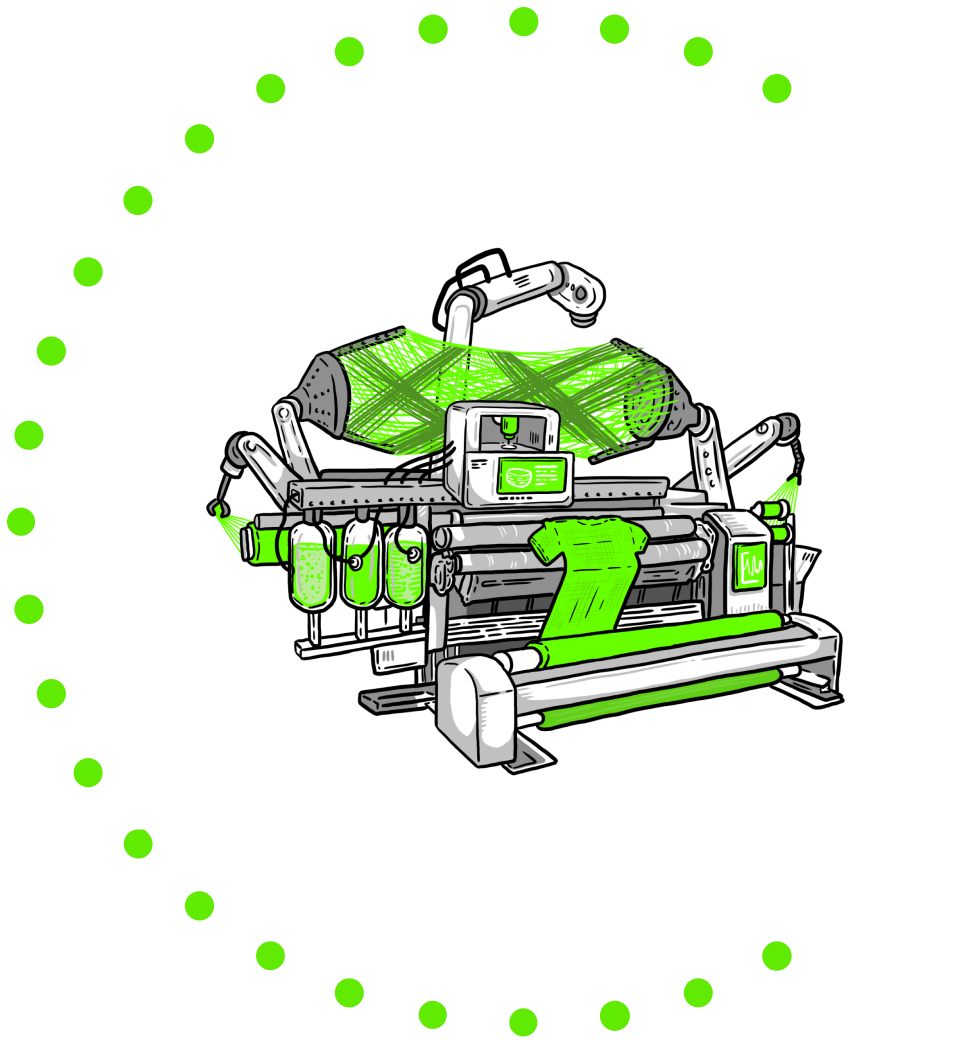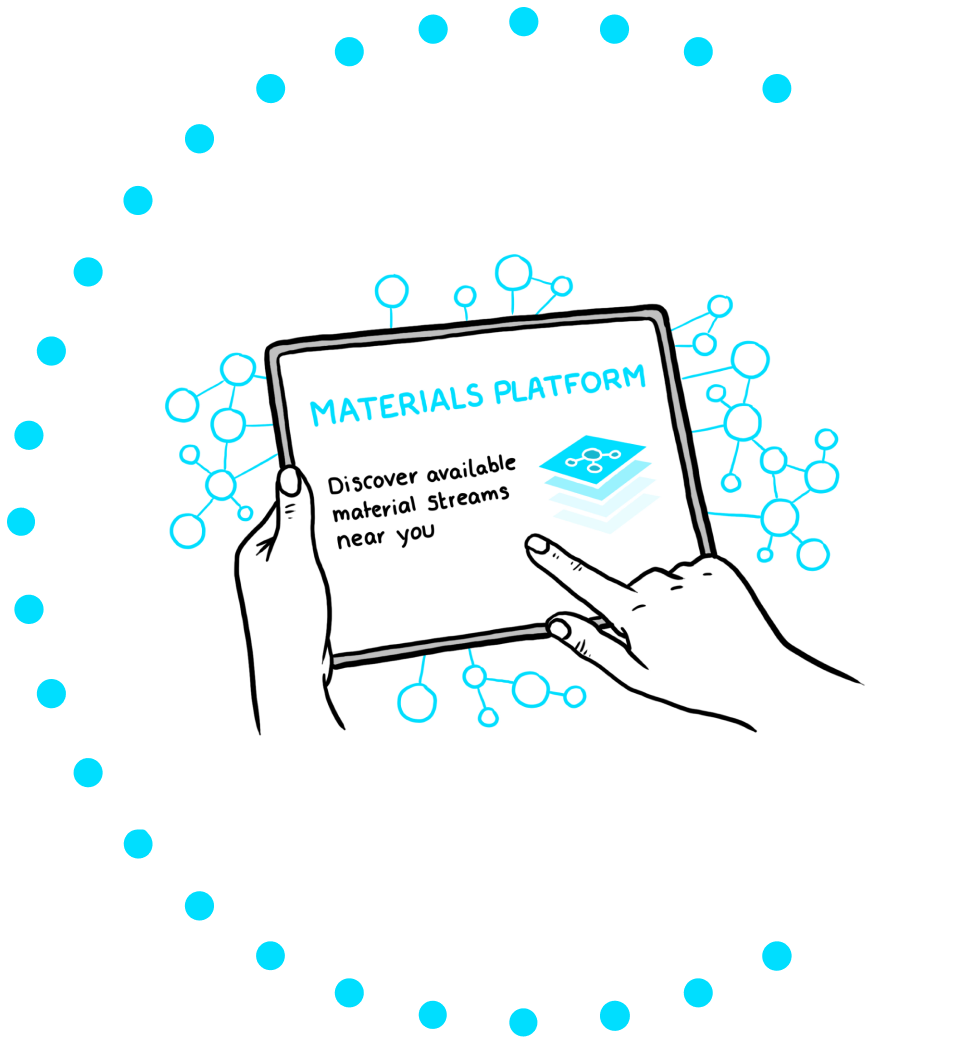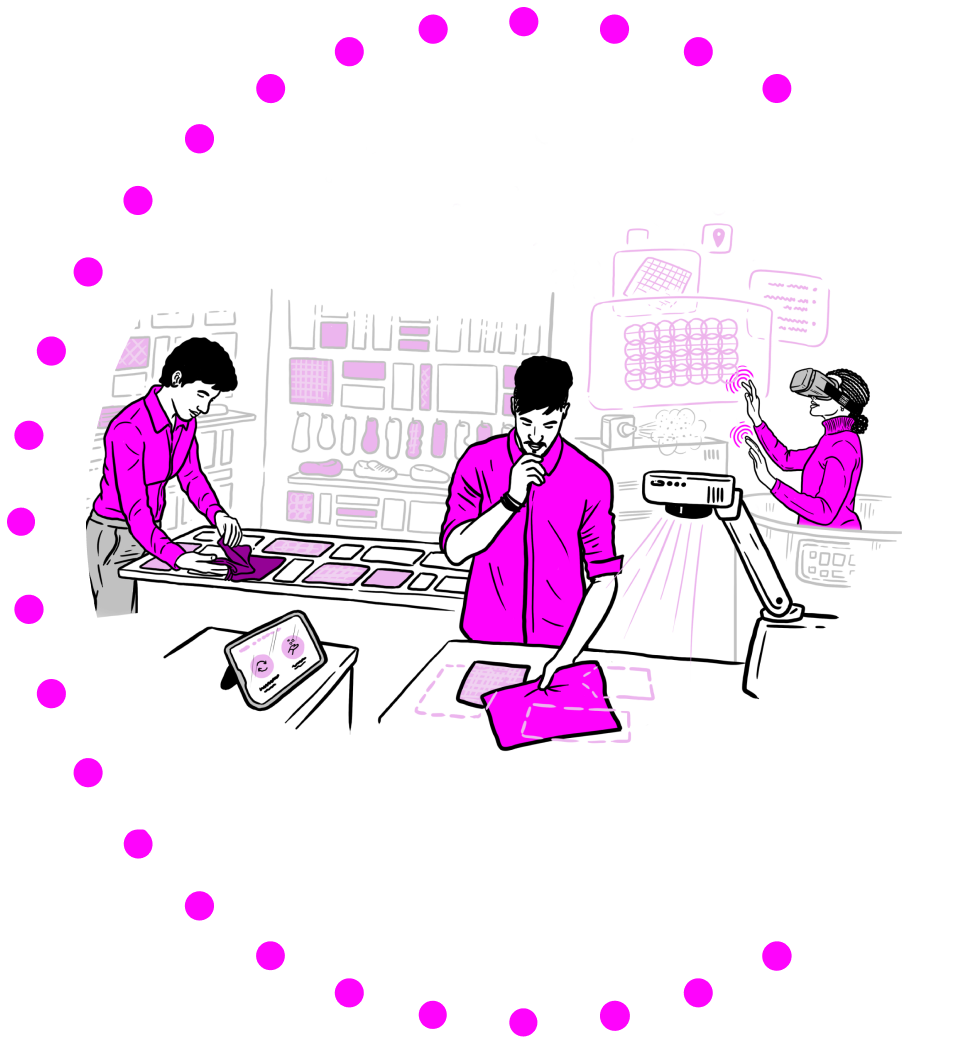Research Strands
The TCC has a programme of research comprising three interconnected Research Strands: Material Circularity, Consumer Experience, and Circular Supply Chain. The objective of the Research Strands is to demonstrate actionable solutions that would enable our systems design.

Materials Circularity Research Strand
The Materials Circularity Research Strand proposes an alternative course of action with materials in textiles circularity: one in which we solely use waste for clean, on-demand textile production in which garments are designed for reuse and regeneration, and in which environmental impacts are dramatically reduced.

Overview
Using lab-proven biotechnology and circular design strategies, Material Circularity is transforming bio waste into renewable polymers, fibres and flexible textile materials that can be repaired and recycled. They are also innovating advanced manufacturing techniques such as 3D weaving, robotics, additive manufacturing with circular design, to produce circular textiles for apparel.
Research challenges and objectives
The work in the Materials Circularity Research strand has three stages, each of which has its own research questions and challenges: Recycling: How can we develop sustainable high-quality textile polymers from end-of-life textiles and other waste? Regeneration and Fabrication: How will we manufacture advanced textiles from these polymers? Design of Use: How do we ensure our new textile processes thrive in the context of use?
Read moreOur Team
Our vision is empowered by an interdisciplinary approach. Our core team consists of six laboratories from five academic institutions at the Royal College of Art, University of York, Cranfield University, University of Manchester and University of Leeds.
Circular Supply Chain Research Strand
The current state of the textile supply chain is optimised to be global, fast and linear. Forces in a changing world of innovations in novel biomaterial and new consumer experiences means that supply chains must bend to become more narrow and slow with circular closed-loop resource flows.

Overview
Circular Supply Chain is designing a transparent supply chain that will promote cultures of cooperation between stakeholders, and investigating the technologies that will enable it, such as a digital 'Biomaterials Platform' through which apparel brands will access this supply chain.
Research challenges and objectives
A circular textile supply chain brings in more local actors, who will operate under new contractual arrangements, where converting organic by-products and waste feedstocks to new materials is not straightforward and brings variation to the quality, quantity, transportation cost and timing of availability of feedstock. Circular supply chains must solve this puzzle. In addition, the TCC seeks to support local manufacturing, encourage a dynamic set of SMEs and bring novel interactions with end consumers.
Read moreOur Team
The Supply Chain team is led by the University of Cambridge (Institute for Manufacturing), with academics at the Royal College of Art (Materials Science Research Centre and the School of Design).
Consumer Experience Research Strand
The Consumer Experience Research Strand (CX) will offer consumer experience design that gives people agency to participate in the circular economy. We will amplify couplings between material flows and human wellbeing by designing consumer experiences that engage people in interactive, meaningful, co-creative and sustainable cultures for products.

Overview
CX is developing an in-store Configurator using creative technologies to engage consumers in digitally immersive experiences and services at the point of consumption that promote couplings between bio waste and human wellbeing, and that compel consumers to keep products in use for as long as possible. CX is designing consumer experiences that will establish a feedback loop between consumers’ experience and textiles development that contributes to textiles circularity, enable consumers to engage in co-creation of products, whilst working with design brands to reimagine participation.
Research challenges and objectives
We aim to create a new culture of consumption that will meet the demands of the market for greater sustainability whilst giving consumers greater agency to respect their environment. This requires a new relationship between consumers and their products. The key challenges for the Consumer Experience Research Strand are: Challenge 1. Promote a new culture of consumption Challenge 2. Address the ethical consumption gap Challenge 3. Facilitate the adoption of waste-based textiles
Read moreOur Team
The Consumer Experience team is formed of academics at the Royal College of Art (Materials Science Research Centre and Information Experience Design) and UCL (UCL Institute of Education, UCL Interaction Centre, UCL Department of Computer Science and UCL Division of Psychology and Language Sciences).